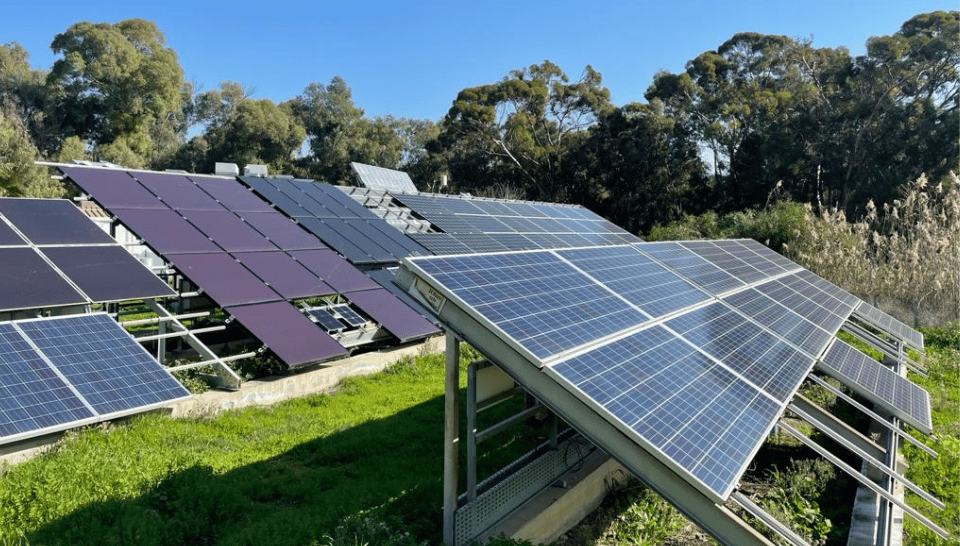Cyprus may face power blackouts unless measures are taken to balance electricity production and consumption, Energy Minister George Papanastasiou warned on Monday.
He said the government, alongside the Cyprus transmission system operator (TSO), is working on solutions to avoid cutting energy from photovoltaic (PV) systems, a measure currently used to protect the grid.
Speaking at an event hosted by the Edek party on energy policy, Papanastasiou explained that one way to prevent cuts is by increasing self-consumption of solar energy.
This means encouraging people to use the electricity they generate rather than feeding it into the national grid. He also pointed to the installation of “ripple control” systems, which help regulate electricity flow, as a key step in stabilising supply.
Cyprus’ energy infrastructure struggles with fluctuations in power demand. The country generates an excess of solar power during the day but lacks the means to store it for use at night or during colder months.
“We are forced to cut solar power during the day because we don’t have a storage system to use that energy when it is really needed,” Papanastasiou said.
A new technical approach is being explored, where excess solar power would be redirected for immediate local consumption rather than being fed into the grid. Currently, the only option is to switch off solar power generation when the grid is at risk of overload.
The minister also urged parliament to approve an energy storage bill introduced in January. The legislation aligns Cyprus with EU directives, allowing for faster development of energy storage projects.
“Without storage, we will continue cutting solar power. This law will enable the TSO to quickly establish a central storage system,” he said.
Cyprus prioritises reducing electricity from conventional power stations first, as they are costly and polluting. Only when further reductions are needed are large wind and solar farms affected. If supply still exceeds demand, smaller residential and commercial solar systems are disconnected as a last resort.
TSO executive director Stavros Stavrinos defended these measures, saying they prevent the grid from collapsing.
“If the system shuts down due to imbalance, it could take months to restore power. Without storage, we must make quick cuts when solar power generation suddenly drops,” he explained.
Unlike most European nations, Cyprus cannot export surplus electricity because its grid is not connected to any neighbouring country. The government is working on a complex interconnection project with Greece, but financial and geopolitical challenges are slowing progress. French cable manufacturer Nexans is responsible for seabed research and cable installation, but the project remains uncertain, although Greece reiterated its commitment to the project on Monday.
Papanastasiou noted that securing investment depends on the project’s geopolitical stability.
“This is a major energy link between the Eastern Mediterranean and Europe, but non-connected countries see it as a challenge to their influence,” he said.
The event also focused on the role of natural gas and renewable energy in Cyprus. The minister provided updates on offshore drilling and potential new gas reserves. He said results from the Elektra gas field are expected by the end of the month, with estimates suggesting it could hold between 10 and 30 trillion cubic feet of gas.
“If confirmed, this will be a game-changer,” he said.
Meanwhile, the Cyprus energy regulatory authority (Cera) warned that the country faces some of the highest electricity prices in the EU. Cera chairman Polyvios Lemonaris said a competitive energy market is essential but noted that Cyprus remains dependent on imported fuels.
Edek leader Marinos Sizopoulos said Cyprus should push the EU for exemptions from green energy taxes due to its geographical limitations. He also raised concerns about unfair competition from the Turkish-controlled north, where fuel does not meet EU standards.
As the government works towards a more stable and efficient energy system, officials agree that storage and grid interconnection remain the two biggest challenges. Without urgent action, Cyprus risks continued power cuts and high electricity prices for consumers.






Click here to change your cookie preferences